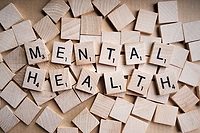FCC Approves Proposal for 3-digit Number as Suicide Prevention Hotline

The Federal Communications Commission has approved a proposal for the three-digit number 988 for the National Suicide Prevention Hotline.
The commission unanimously voted to approve the proposal, which is now open for public comment, and begin the rule-making process. The proposal requires carriers to implement 988 as a national suicide prevention hotline within an 18-month time frame.
In a report to Congress in August, the FCC said, "Designating a 3-digit code dedicated solely for the purpose of a national suicide prevention and mental health hotline would likely make it easier for Americans in crisis to access potentially life-saving resource."
The report noted that in 2017, more than 47,000 Americans died by suicide and more than 1.4 million adults attempted suicide. According to the Centers for Disease Control and Prevention (CDC), from 1999 to 2016, suicide increased in 49 of the 50 states, and in more than half of those states, the increase was greater than 20%. Moreover, the largest increase in deaths by suicide occurred in the past decade, and from 2016 to 2017, an increase of 3.7% (more than 2,000 additional suicide deaths) was recorded.9 Suicide rates are higher across various at-risk populations, including Veterans.
According to the report, the FCC had considered other three-digit options for the hotline, but determined that the 988 number "could be implemented more easily and quickly than repurposing an existing 3-digit" number.
Republican Utah Rep. Chris Stewart helped pass a bipartisan law that led to the FCC report. The law, signed by President Donald Trump in 2018, called for a study to determine the hotline's effectiveness and the best three-digit dialing code for the hotline.
"This dialing code is an essential step in providing critical resources to those in emotional distress," he said.
Rep. Seth Moulton (D-MA), who co-sponored the bill, said, "This bill will save lives. When your house is on fire, you don’t have time to look up the fire department’s phone number—that’s why we have 9-1-1. In the same way, you should know what number to dial when a friend, a loved one, or you yourself are experiencing a mental health crisis. This is a major milestone on the road to where mental healthcare in America is just part of healthcare, period. It’s one part of ending the stigma around mental health and making Americans healthier and stronger.”
Looking for a reprint of this article?
From high-res PDFs to custom plaques, order your copy today!





